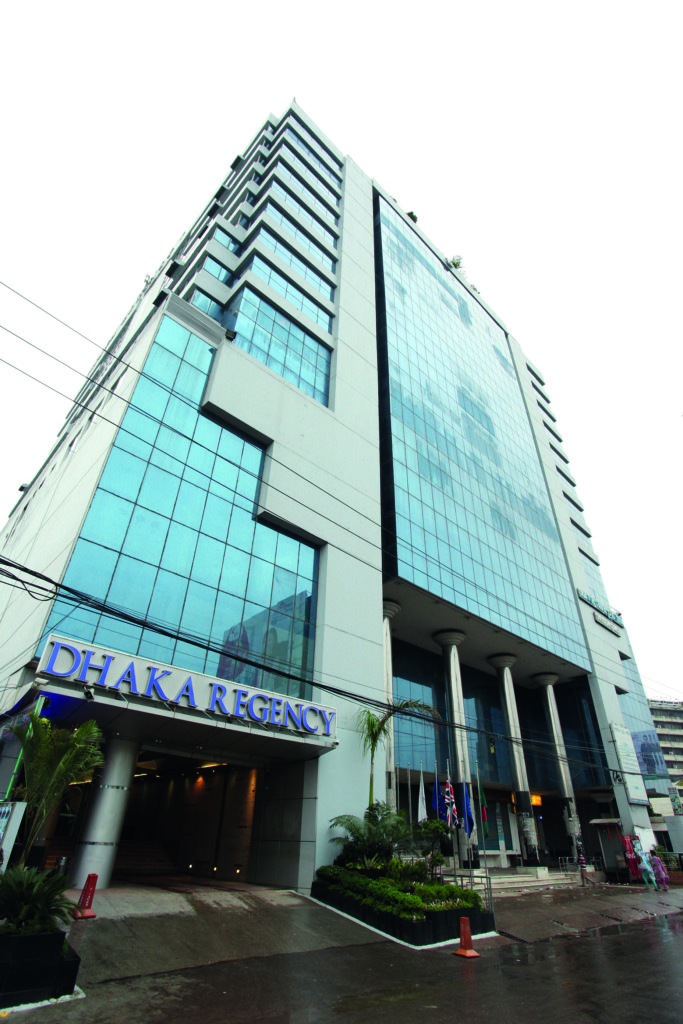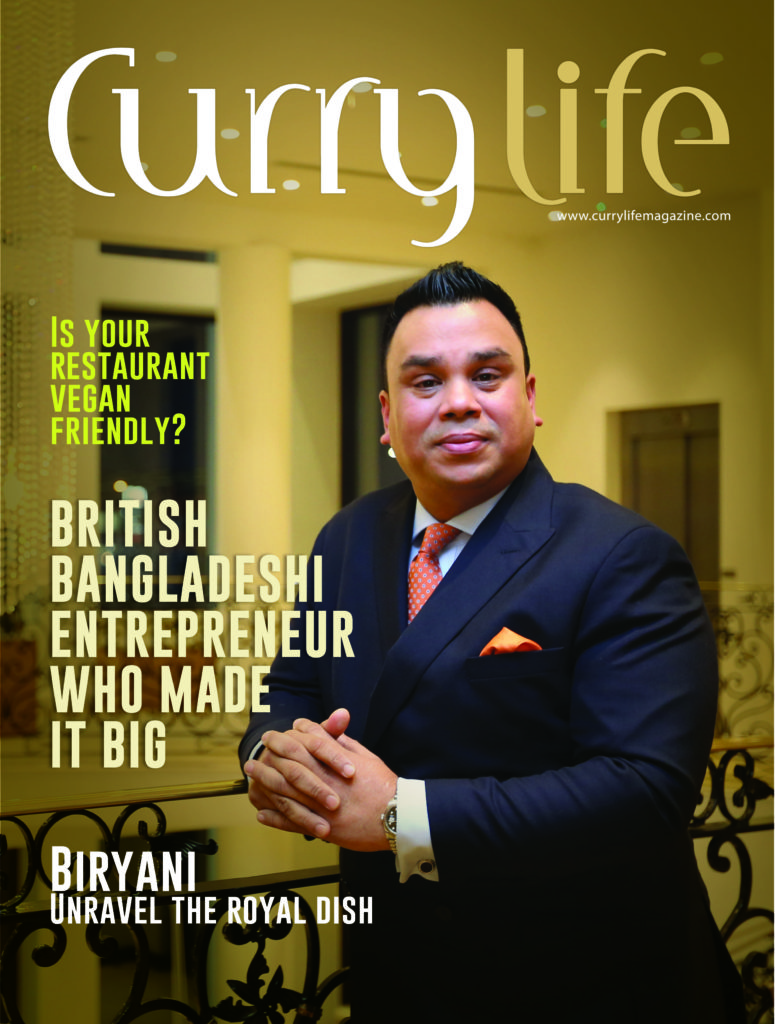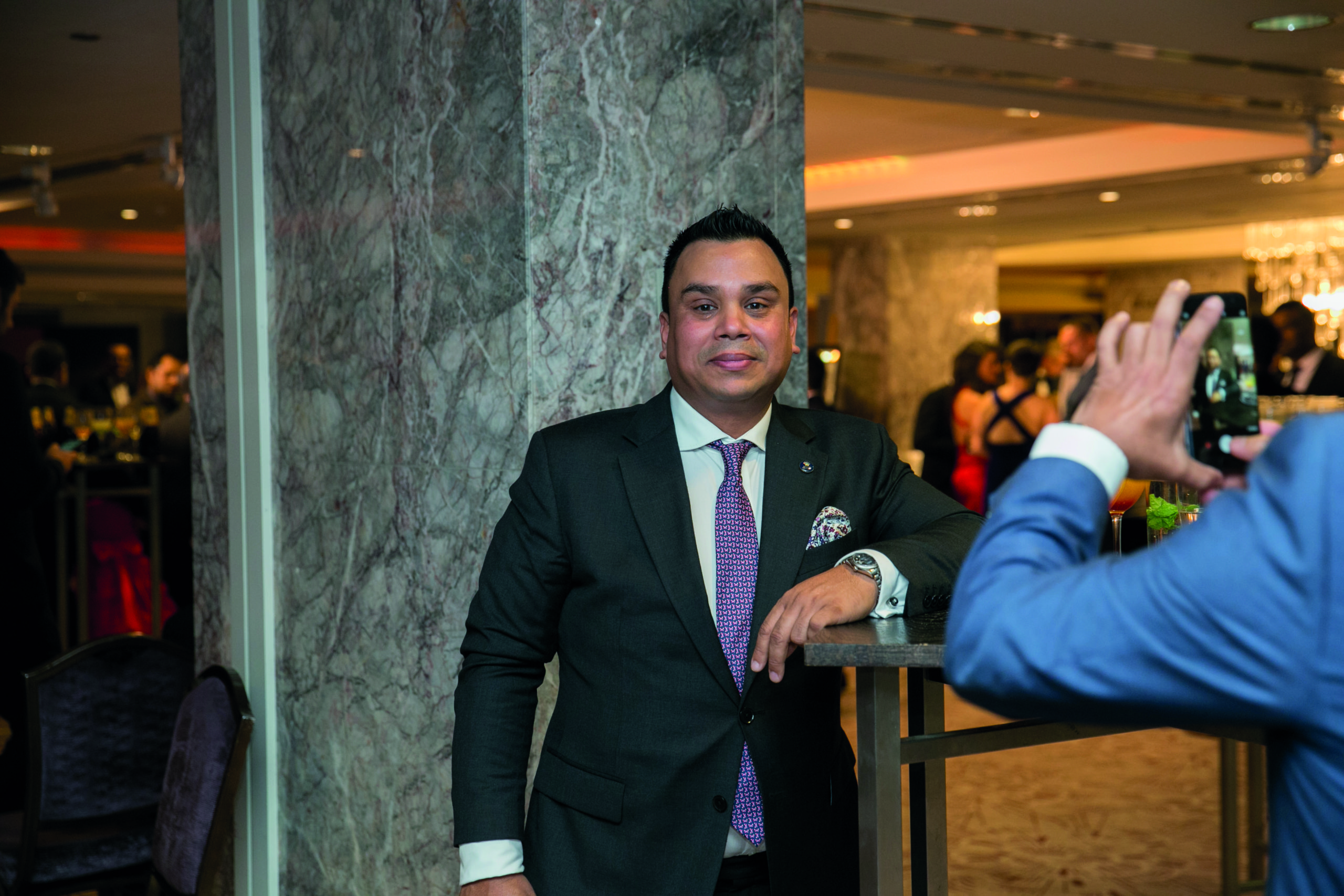British Bangladeshi Entrepreneur Who Made It Big
Story of a Non Resident Bangladeshi (NRB) Hotel Project, Dhaka Regency is inspiring changes in Hospitality Business in Bangladesh.
British Bangladeshi Entrepreneur, Musleh Ahmed, has a brilliant story of taking initiative and making ideas happen. With a group of NRB investors and entrepreneurs, he founded Dhaka Regency Hotel in 2007. Now a decade later, this has evolved into a thriving Hotel enterprise including over 400 members of staff.
What does it take to build a company from scratch? Why do people start things and build things? What motivates entrepreneurs? Musleh Ahmed in a candid conversation with Editor in Chief of Curry Life Magazine, Syed Nahas Pasha, opens up about his journey so far – the umpteen challenges, followed by success. Several international 5-star hotel chains breezed into Bangladesh in the last few years but only a handful have really made their mark from scratch. The luxurious Dhaka Regency is an example of the latter. Established in April 2007, as ‘a destination of indulgence’, this prominent hotel promises to deliver the best service in the industry. Despite all the hardships, Mr Musleh Ahmed stands tall, keen to bring better and bigger opportunities in the hospitality industry to Bangladesh. He is also

actively involved in Non-Resident Bangladeshis (NRBs) activities in Bangladesh and UK.

Born in Sylhet, Bangladesh and brought up in the UK, Musleh graduated with an honour’s degree in Marketing & Management from London Guildhall University. He is now the Chairman of Dhaka Regency Hotel & Resort Limited, which he founded in 2007. The exquisite hotel has 225 guest rooms including suites, where the décor and design is splendid and attention to detail noteworthy. There are few multi cuisine restaurants — Grandiose Restaurant, Grill on the Skyline (roof-top restaurant), Comfee Lounge, Club 13, Shisha World, and other facilities such as an authentic Thai spa and salon, health club and gym, and a spectacular roof top swimming pool.
After successfully running the business for 12 years, with an impressive cash dividend of 22 per cent to investors last year, Musleh is pleased with the phase the business is at. “The project took off well on time as we had the investments coming in sooner than expected. There was some hindrance from locals who thought we were being unrealistic in terms of our timeline, but we were determined to do it,” he says, highlighting, “We are in the process of going to the capital market to raise money and expand. We are all very positive about going public and looking forward to expand and grow.”
Starting Point
The idea of getting into a hotel business was completely out of the blue. Musleh and his friend, Arif Motahar, who moved back to Bangladesh while working for BRAC, brainstormed on various ideas while trying to discover opportunities. However, when this project came along, they both knew this was the challenge they were looking for. “It was a big dream, a huge challenge. I was 28, and Arif was about 32 then. Neither of us had taken up anything as challenging before in our lives,” he recalls.
Weighing various options to devise investment plans, is crucial to every business. “Going to the bank was an obvious option but I am a strong believer of networking. Hence my plan was to look for investors and set up a consortium. So rather than going to the bank, we brought together a pool of people – most of them Non-Resident Bangladeshis (NRBs).”
Musleh drew this idea from his past experience where he worked as the General Secretary of Graduate Forum, a London-wide project, based out of Tower Hamlets. “We worked with young graduates, guiding them as they embarked on a new journey. We organised conferences, encouraged youngsters to network through professional groups for lawyers, accounts, business consultants and so on. I wanted to apply this to my hotel business too,” he elaborates.
“So, we created a consortium and invited people to chip in as shareholders – small portions of investments from interested parties rather than one big chunk from the bank. Many NRBs and restauranteurs came forward, making us the pioneers of NRB consortium on this grand a scale. We then knew we could achieve the unachievable,” he adds.
Words of Wisdom
Musleh had a very strong message for the younger generation, his one and only message was loud and clear. “Focus on your education as that’s your foundation. If you want to be successful, you have to finish your graduation at least,” he says, adding, “If you’ve not completed your education, at some stage in life, you will see that is becoming your biggest barrier for progression in life. I know people rely on different skills and talent, so education is not the parameter to do well. However, it is very important to complete your education.”
Sharing a few takeaways from his experience working with a large workforce, the entrepreneur has few advices for investors. “You have to be very committed to the purpose. You cannot achieve the desired results by living in one place and managing people or a company from another – at least not in the initial days. For this you must have good business planning, know the feasibility and work out costs,” he elucidates, as he reveals his desire of writing a book to share all his experiences.
“Secondly, you should be ready to deal with the problem like a local and if need be, with the help of locals. You need to employ the local expertise to help you deliver. Start with the right partners, with common objectives and people who are the right wavelength as you’ve got to deal with plenty of challenges,” he says, adding, “Lastly and more importantly, if you see someone growing, encourage them rather than pulling them down. The country is not full of problems, there are opportunities as well.”
Chasing Dreams
With over ten years of experience as a banker, business advisor and a social entrepreneur, Musleh always wanted to pursue his own business project but waited for the right time and looked to gain more experience. He assisted in creation of many successful business ventures in UK and Bangladesh. “In the banking sector, I worked for Natwest and Llyods TSB, following which I moved to voluntary sector organisations. My first project was at EMEP (Ethnic Minorities Enterprise Project), European-funded projects that help local SMEs, this one primarily focusing in the Brick Lane area.”
“Through the restaurant regeneration projects, we ran the Brick Lane Curry Festival, the Brick Lane festival annually for which I was the program manager. Few years later I started my first venture, a store named Aarong, selling products made by rural artisans in Bangladesh.”
Aarong traded handicrafts which were made by Bangladeshi women, who were supported by BRAC – world’s biggest NGO based in Bangladesh, with a mission to empower them. During the time, travel was intensive and Musleh made the most of it. “Since I was born in Bangladesh and brought up here in the UK, I loved going back to Bangladesh. There was so much to learn, know and explore about the culture and life there,” he says. “Visiting the production lines in rural parts of the country every 3-4 months was very interesting as I learnt something new every time and I made a lot of friends as well,” he adds.
After 10 years of business, the store located off Valence Road in East London, was shut down due to decline in demand and crowded markets. On the brighter side, the frequent travel to Bangladesh sparked a fresh business idea – to establish a lush and lavish hotel in the South Asian country’s capital.
Not All Rosy
Bringing people from various walks of life can be a daunting task. “The entire process taught me a great deal. The concept of investors and consortium and how it works was not something everyone understood. There were so many people coming from different backgrounds and level of understanding and the with the size of the project, it wasn’t easy,” he explains, adding, “For example, interference in daily business disrupted the functioning of the operations. Initially some people’s attitude was like as they owned the hotel. They failed to understand it is a huge project with over 400 people working together, unlike a family-run business. The day-to-day operations are carried out professionally, in a planned and systematic manner.”
“So, it became critical to make them understand as shareholders, they should just concentrate on the returns and not interfere with the operations. The board makes the decisions. I’m a chairman of the company but I don’t get involved in daily operations. You have a team of people who are professionally running the show, executing their job responsibilities,” the entrepreneur adds.
Another crucial aspect was the upcoming boom in hotel industry. “Bangladesh only had a couple of 5-star hotels, that too owned by government. We can proudly say we were the first privately owned 5-star hotel in Bangladesh, at that scale. There were a few privately owned hotels in Bangladesh, but none with all the facilities we had.”
“Now there are number of international brands coming into Bangladesh after us, so it’s like we paved the way for them. We have top brands like Le Meridian, Radisson and many others. This in itself is a huge achievement,” he affirms.
With the growing number of hotels, the market is getting more competitive. “When we went into the market there weren’t too many choices, like these days. Now with the entrance of many popular chains, we are expecting at least 1500 more rooms end of next year in the market. So that’s a huge market supply coming in.”
Domestic Tourists vs International Travellers
Bangladesh has some beautiful towns, natural reserves and seaside locations that can be turned into tourism spots. In the present scenario, almost 97 percent of tourists are domestic. Incidentally, the government too has noted it and set aside a sizeable budget for the Ministry of Tourism and Hospitality. Therefore, the scope for international tourism is huge.
“The potential for international tourism is enormous. This is certainly a good opportunity for us — resorts and hotel owners. Recently at the Gulf and Indian Ocean Hotel Investors’ Summit 2019 in Dubai, hoteliers particularly from countries in the Indian Ocean region united with business leaders, developers and key decision-makers, to discuss issues, strategies and developments in the hotel industry. It was a great experience for me as I was there for the second year talking about the Bangladesh market,” the entrepreneur shared.
Speaking about domestic tourists, Musleh reveals, “Recently, we opened a Tea lounge in Sylhet –a place where you can just hang out or have meetings, just as a small project and the response is amazing. At the moment, there are not many international brands in Sylhet – there is a Moven Pick coming up near the airport which is expected to open soon. Like Sylhet, there are many districts across the country which can be developed in tourist places.”
Eco tourism is an upcoming and entirely new approach to travelling, which Musleh strongly supports. Resorts and hotels which opt for this help preserve the natural beauty, appreciate cultural and natural history of the environment, and create economic opportunities for local people. “There are lots of beautiful places like Sundarban, Bandarban, Rangamati etc. My plan is to have package tours from the hotel to take visitors around. These are experiences which children, teenagers and all age groups will appreciate,” he explains, pointing out how some youngsters, who travel to Bangladesh, don’t enjoy the experience of going back to their roots.
Promote ‘Made in Bangladesh’
With eco-tourism, comes the advantage of increasing employment opportunities. In a bid to promote Bangladesh-made products after having experimented it at his lounge in Sylhett, Musleh says, “I don’t want to import anything from China. I’m confident we can manufacture everything in Bangladesh itself. Rural artisans can do an excellent job if they are given proper guidance and incentives.”
He applies the same theory to hospitality training institutes too. “In order to meet demand of growing number of resorts and hotels, we intend to open more training institutes. Currently, we are running a hospitality training institute in Dhaka — Regency Hospitality Training Institute (RHTI), which is one of the leading institutes in the country and accredited and affiliated with international bodies. We’ve trained over 2000 people, many are working across the country, while some are employed abroad.”
At the start, it was a struggle for Musleh to find trained and skilled staff. “Initially we survived on people returning with experience from Middle East, staff who worked in top hotels in Dubai and Saudi Arabia. But now it’s the other way around. We have our former staff working in Atlantis The Palm and other top places, so it is a matter of pride for us.”
Upcoming Projects
More than happy to rally around his community and people, Musleh says, “I will certainly invest more in Bangladesh. I’m getting a lot of experience and exposure and understanding the market better. My primary focus will be the hospitality industry as that’s where most of my experience lies, but I don’t mind looking at other sectors too.” Talking about projects in the pipeline, “We will be opening our next in Cox’s Bazaar, which is on a seaside location; then there is another one in Sylhet and a third project in Dhaka,” he says. About the branding, he elaborated, “The one in Cox’s Bazaar is named Cox Regency, Dhaka one is Dhaka Regency. In Sylhet, we are also looking at opening another training institute branch.”




